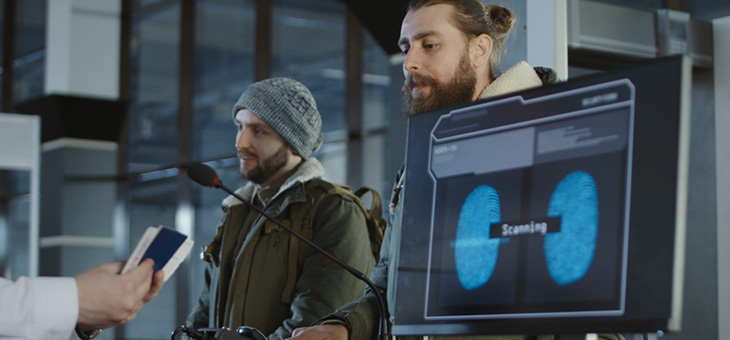Boarding passes are going digital and by 2020, the Australian Government was hoping to have a system in place that processed around 90 per cent of travellers automatically. While all of the necessary technology to make this happen is in place, we may have a bit longer to wait before biometric passports are introduced.
Considering the recent chaos caused by all SmartGate passport control machines systems across Australia going out of commission for six hours, maybe waiting a bit longer is a good thing.
During this outage, passengers were waiting up to 90 minutes for document checks alone. The only reason they were able to get through the gates was because the Australian Border Force was able to manually check all physical documentation to process travellers.
If there were no such things as paperwork and passports, a similar technology failure would likely cause Australia’s airports to come to a halt.
Don’t think though that this situation is a deterrent for fully automatic systems being introduced in the near future. It will happen.
And when it does, says the head of the border security program at the Australian Strategic Policy Institute, John Coyne, some travellers can expect diabolical delays at airports.
However, other obviously low-risk travellers would be processed without their knowledge and would barely be held up.
A traveller’s biometric characteristics – face, iris and/or fingerprints – would be collected unobtrusively by advanced technologies before departure and on arrival into Australia.
Confirmation of a person’s identity and visa or residency status would be matched with any information stored in security or government databases. Artificial intelligence-driven assessments would then calculate the risk each traveller presents in terms of criminality and national security. All this would happen almost instantaneously.
Processing the expanding volume of travellers passing through airports each year is time-consuming and expensive. If tourism growth continues at the same rate year on year, soon the cost to facilitate travel and security will become prohibitive.
To focus on real threats, the Department of Home Affairs, the Australian Border Force and Australian Federal Police need cheaper and smarter ways to process low-risk travellers. Hence the call for biometrics and artificial intelligence-driven risk analysis.
But Mr Coyne thinks it might be prudent to wait until any potential kinks – such as last week’s nationwide outage – can be ironed out and the system can be finetuned before being implemented.
“If the old adage that a picture is worth a thousand words is right, then surely our biometrics – our facial characteristics and finger prints – should be worth a whole lot more to us than convenience,” writes Mr Coyne.
“I am not suggesting that Australians should reject this new technology, but that they shouldn’t be too quick to get rid of passports or handover their biometrics.
“If the government intends to make further changes to Australia’s border security arrangements, then it needs to present a compelling case to the public that at the very least clearly articulates the risks.”
Do you have a problem with biometric passports? Are you comfortable with the current system or would you be happy to carry one less piece of ID around with you?
Related articles:
What to do if you lose your passport
Fingerprints to replace passports
Boarding a flight without a phone

